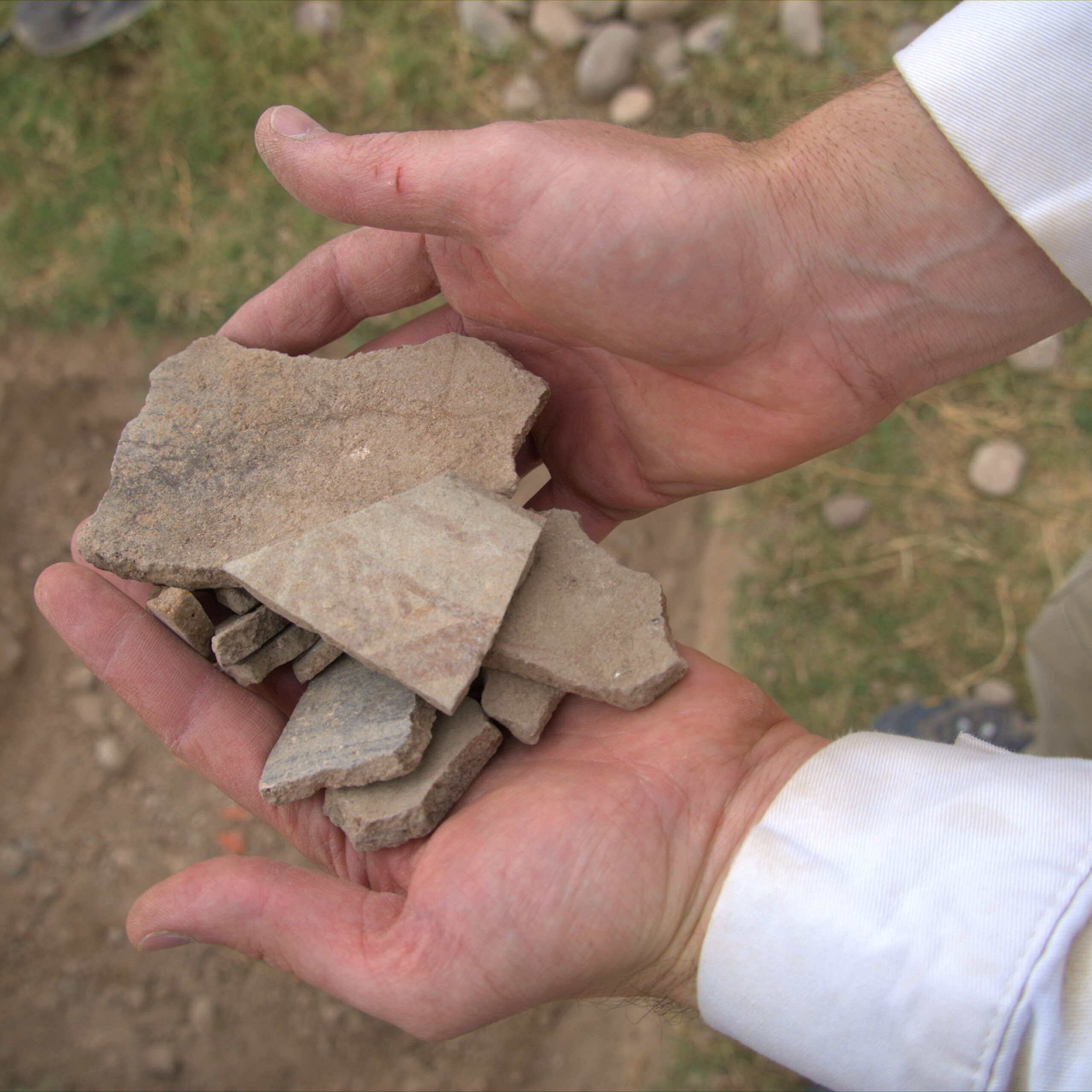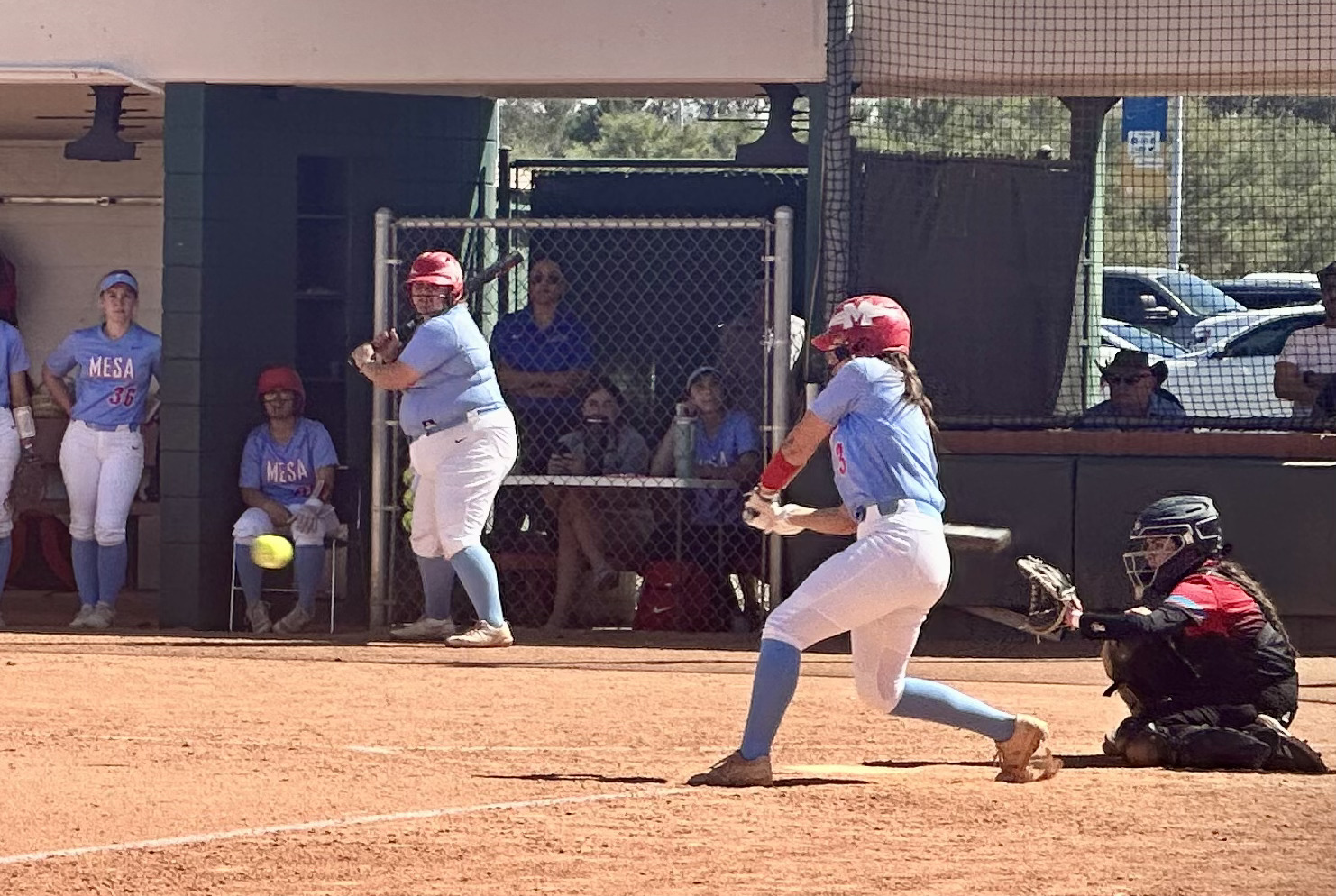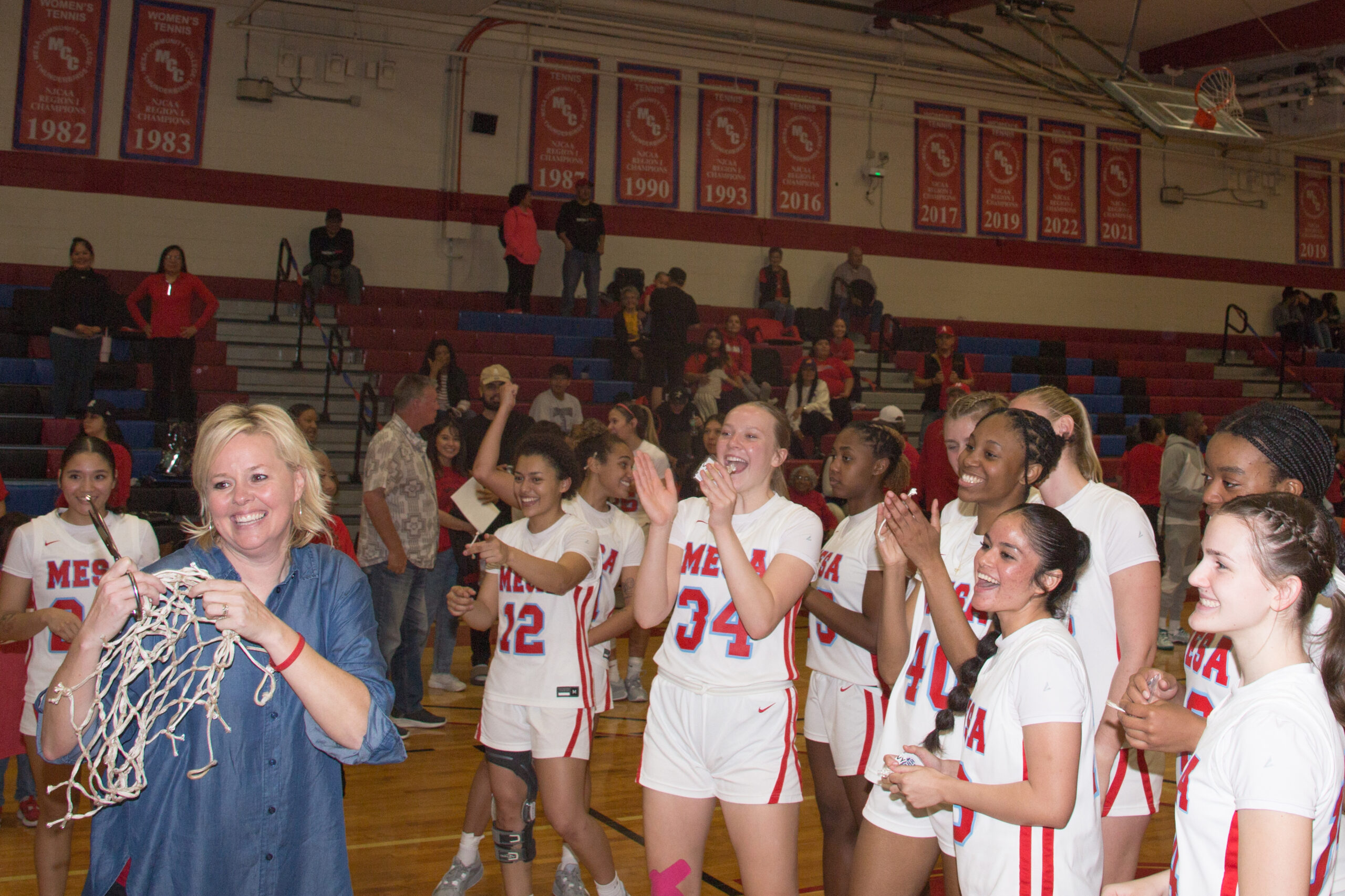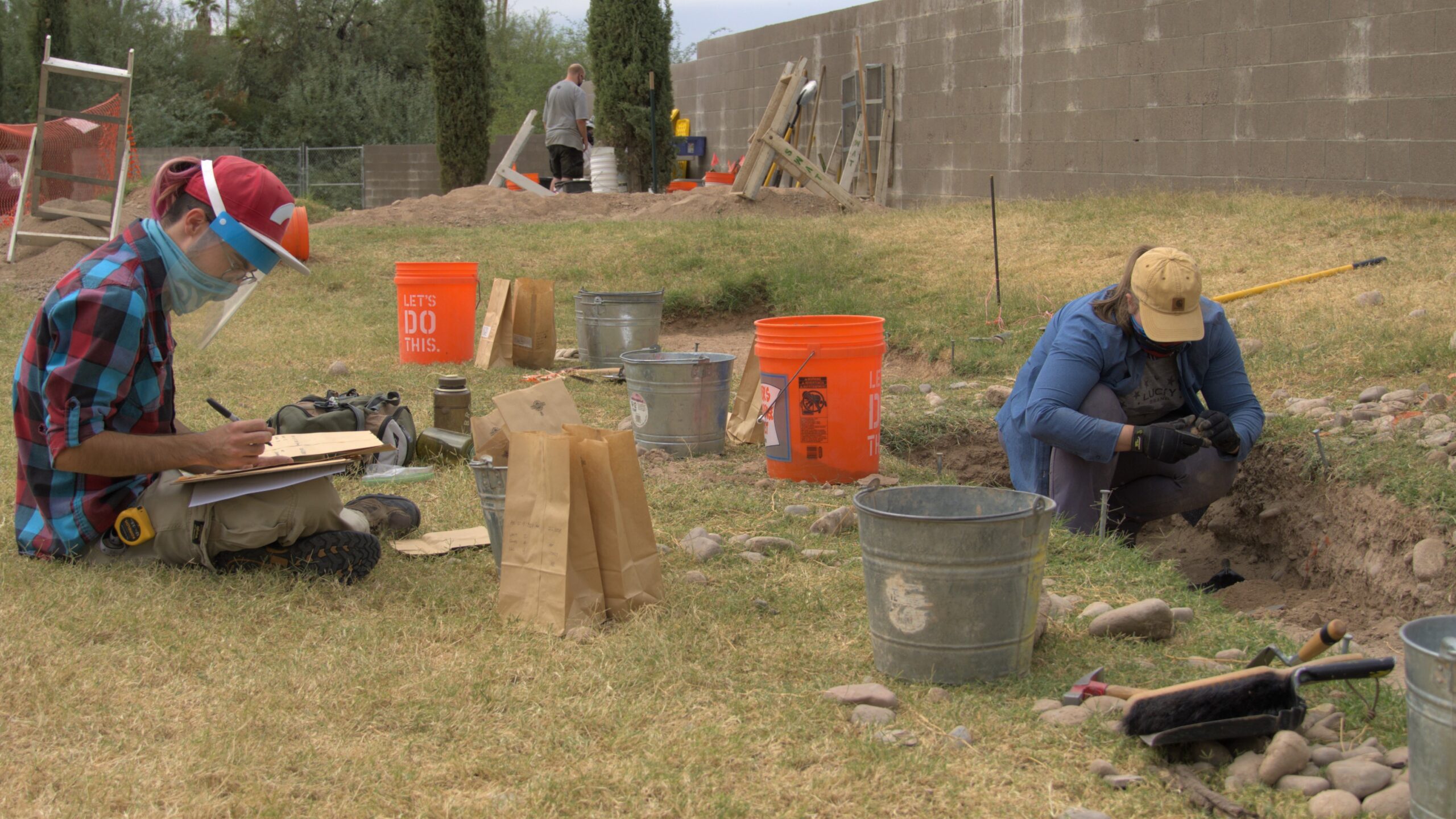MCC archaeology students uncover Hohokam artifacts at Mesa Cemetery
Mesa Community College’s (MCC) Archaeological Field Methods class is excavating the City of Mesa Cemetery in an effort to protect and identify the artifacts of the ancient Hohokam people.
The archaeological field work, which is part of MCC’s ASB231 course, gives instructors and students majoring in archaeology a long-sought-after chance to work in-person after delays due to COVID-19.
“We’ve found a new site working with the city on a plot of land they haven’t developed yet,” said Kirk Costion, residential faculty of the MCC Cultural Sciences Department. “We are making sure they aren’t destroying anything by putting in new graves.”
The uncovered artifacts, which are estimated to be 800-1000 years old, are the leftovers of what on-site archaeologists believe was a trash dump belonging to the ancient civilization. Students have discovered shards of pottery, arrowheads and obsidian, among other to-be-identified objects within the several small plots spread across the taped-off site at the end of the cemetery.

One MCC student, Zane McCracken, said they had found 134 ceramic shards and 42 lithic shards in the plot he was detailing in his journal. Other students, wielding their own small pickaxes and journals, eagerly categorized the many remnants found within the other portions of the site. Several small brown bags were marked at the edges of the majority of excavation plots indicating something of value had been found there.
“It’s always a good feeling when you find something. It doesn’t even matter if it’s actually something substantial or cool or not. Even when you find something that’s small, it’s always a good feeling, because it means you are in the right area,” said student Bill Dundas.
“Mainly shards… we are finding some lithics, obsidian,” said student Hanah Edington when asked what she had found while sifting through dirt at the site. “It’s fun. I enjoy it a lot.”
Still, the opportunity to work amid the pandemic wasn’t met without challenges, and the curriculum delays have caused students to miss months of archaeological field experience. Because Archeological Field Methods is a hands-on class, it often goes on students’ resumes, which qualifies them for future jobs at local archaeology organizations. Being unable to complete anything other than what was available online during spring meant students couldn’t gain the course credits and experience necessary for the highly competitive field.
“This is a practical class. We are teaching our students how to excavate and record data,” said Costion. “There is literally no way to do it online.”
Instead of letting students leave MCC without any field experience, instructors rallied to create a way for them to return to the site after the spring semester ended. The solution wound up being a delayed grading system in which students were given a passing ‘P’ grade and the option to return for a full letter grade in the fall.
The course started back up again in September completely refitted for students to work safely in the pandemic. Everyone at the site is now required to wear masks and face shields, use hand sanitizer and socially distance. So far, the return is considered a success by both site instructors and students.
“It’s good to be back,” said student Anthony Allen.
Unfortunately, being forced to stop in March didn’t help the integrity of the excavation. Unable to return to the site, student archaeologists now find modern contaminates such as PVC piping and plastic netting mixed in with artifacts–indicating someone, or something, had disturbed the site while they were away. Despite this, many students are still excited to return to work after the transition left them stranded online.
“It was kind of–I don’t want to say stressful, but it was annoying in a way, not being able to finish it all at once, especially since when we came back it had been disturbed more,” said Allen.
“I love this class. I enjoy the more hands-on field work stuff,” Dundas said.
Dean Wheeler, a professor at Glendale Community College, was also present at the site.
“I’ve worked in various parts around the world from Mexico, studying the Mayans, to the country of Panama, the Ohio Valley and the mountain cultures there,” said Wheeler. “We are really finding a lot of pottery. A lot of lithics and stone tools and things. A lot of things you would expect to find when you are digging into a site where people were throwing their trash away 800-1000 years ago. So far it is meeting our expectations.”
Wheeler said this type of archaeology is necessary for many reasons. For one, it allows researchers to understand how people lived in the past. It also provides helpful hints into modern sustainability practices by looking at how ancient people living in such a dry place were able to survive using primitive tools.
Moreover, according to Wheeler, this type of field work is necessary for the preservation of the past against the expansion of local industry.
“With the growing population in the Phoenix area, a lot of archaeological sites are being destroyed,” said Wheeler. “In fact, this cemetery here, they want to eventually use this area to expand their burial plots. So we want to come out, preserve what we can, collect it, and study it before it’s gone, and there is nothing left to study at all.”
Originally, the City of Mesa Cemetery project was supposed to be completed in two excavation seasons, but due to COVID-19, the excavation is expected to last until 2022. Students interested in working on the project can find more details about the MCC Cultural Sciences department, Archeological Field Methods and other related programs by checking out the anthropology section of the Cultural Sciences Department here.
Updated on 2020 Nov 12th, changed ‘remains’ to ‘artifacts’ to better represent archaeological terminology.










